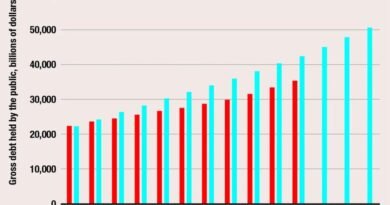Jimmy Carter’s Controversial Perspectives: Distorting Reality in Gaza and Other Insights

Carter the Terrible: A Critical View
According to Philip A. Klein from National Review, Jimmy Carter was “a terrible president and an even worse former president.” He asserts that Carter’s legacy is marked by “economic hardship at home and humiliation abroad.” The claims include that he left the nation in its “weakest position since World War II” and “subsequently interfered in U.S. foreign policy” in ways that some might label as treasonous. Additionally, his “extreme disdain for Israel” is noted as a significant concern. Klein anticipates attempts to revise history and portray Carter as underappreciated, countering this notion by suggesting that historians have not been severe enough in their assessments.
On Censorship: Good Riddance to the GEC
“Congress has compelled the closure of the Global Engagement Center (GEC), a division within the State Department,” proclaims Gabe Kaminsky of the Washington Examiner. Established to combat misinformation and funded by taxpayers, the GEC allegedly crossed boundaries by funding the British Global Disinformation Index, which targeted right-leaning websites, including The Post, that reported stories like “the Hunter Biden laptop saga and the COVID-19 lab leak theory.” Furthermore, the GEC reportedly generated internal directives aimed at discrediting journalists like Kaminsky and Matt Taibbi. Its defunding is seen as a reaffirmation of prior critiques concerning its “dubious activities.”
Media Critique: Misrepresentation in Gaza
In Gaza, “nothing is as it seems,” asserts Seth Mandel from Commentary. He points to the Kamal Adwan Hospital and its director Hussam Abu Safyia, highlighting that while the New York Times casually notes that Israel “claims” Hamas was using the hospital, a recent IDF operation revealed the facility was harboring “240 suspected terrorists, including Safyia” himself, many of whom attempted to escape. Mandel criticizes the mainstream media’s narrative as a smokescreen, questioning the identities of “medical staff” and “aid workers” who seem to lack genuine credentials while attempting to evade accountability.
From the Left: Unmasking the Story of the Year
Matt Taibbi of Racket News observes that “2024 marked a year where what we once called ‘elites’ reverted to inadequate attempts at navigating crises without possessing genuine solutions,” in contrast to “overly prominent pseudo-stories” that overshadowed crucial, yet unresolved, questions. One pressing issue: “Who is truly in charge?” He argues that “for at least a year, America has lacked a functional president,” implying that decisions regarding significant matters like military aid for Ukraine and the Middle East, alongside a multitude of pardons, might be influenced by non-presidential figures. He questions whether there is a term for the magnitude of deception at play, positing that “many individuals must face legal consequences for this situation.”
Urban Situation: Democrats and ‘Livable’ Cities
The disturbing footage of a “woman burning to death” on a New York subway represents the city’s overarching issues: “crime, mentally unstable and intoxicated individuals, undocumented immigrants, and unsafe transit systems,” notes Allysia Finley from The Wall Street Journal. While NYC’s subways reflect broader societal chaos, this disorder appears widespread in major Democratic-led cities like Chicago, San Francisco, and Los Angeles. Despite Democratic claims of striving for “livable” urban spaces, it is their own “high taxes, rampant crime, and societal turmoil” that render these areas “intolerable.” When conversations around Christmas dinner shift to tragedies like the subway incident, Democrats face a significant public relations crisis.
— Compiled by The Post Editorial Board



